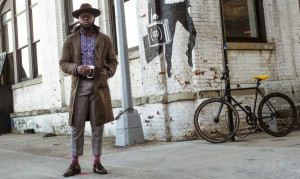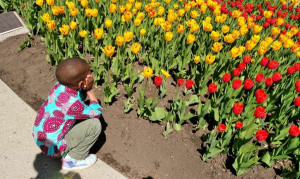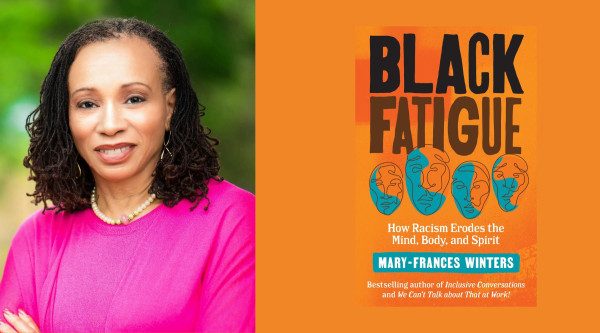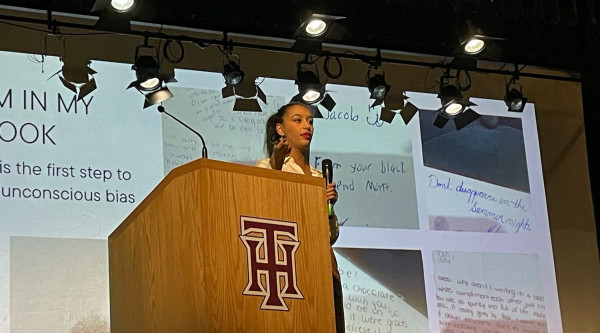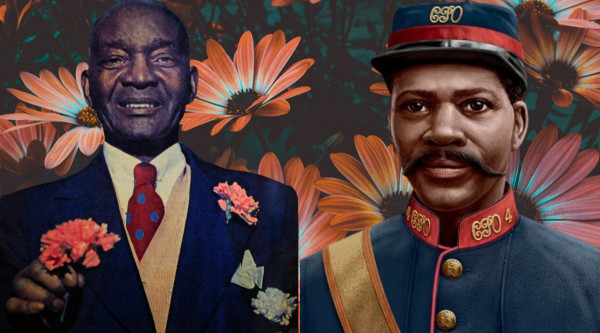McRae is a financial professional who migrated to Toronto years ago from Trinidad. He is one of many Black people in Canada who fears for their lives every day. On that warm evening in August, McRae was walking from the subway after attending the Toronto Caribbean Carnival festivities with his then-fiancé Gloria, when two white men followed them yelling racial slurs. One of the men shouted that he was going to teach his fiancé a lesson and beat up McRae.
“The whole thing happened so fast, says McRae. “I took a few punches to the face and body, stumbled back on Yonge St. about 10 to 15 feet, and fell backward onto the pavement.”
With the help of witnesses and the police, McRae was able to get justice for the attack. The two men were arrested and convicted of a hate crime, but the incident left him with physical scars and psychological trauma.
This was not his first encounter with racism. “I’ve been stopped multiple times in one month,” says McRae.”
In 1998, McRae recalls being pulled over by a police car on his way home from shooting a game of pool with friends. The police approached his car with a canine unit and flashed their lights into his car, demanding that he produce identification.
McRae reached under his seat to get his driver’s licence but before he could retrieve it, the police officer nearest to him had a gun to McRae’s head. “I had to slowly open my fingers starting with my thumb so the officer was aware that I had no gun,” says McRae.
Canada has been known to have some of the friendliest and most polite people in the world. In a 2015 address in London, UK, Prime Minister Justin Trudeau said “Diversity is Canada’s strength.”
His speech would speak of the role Canada played in what he called the “darker moments”, highlighting the history of racism and suggesting that Canadians today “look back on these transgressions with regret and shame.”
He would also make mention of the steps that Canada has made to reconcile, recognizing the Charter of Rights and Freedoms and The Multiculturalism Act.
Since its inception, The Multiculturalism Act has served as a crutch for white Canadians to rely on when evading discussions around diversity, inclusion, and racism.
“It is a concept or idea,” suggests McRae about the utopian Canadian narrative being sold, “that we are all chasing geese and eating maple syrup as we happily integrate into the fabric of Canada as if that’s just normal.”
Many Black Canadians continue to experience different forms of racism from the moment they leave their homes; at bus stops, in their vehicles, at work, or simply walking down the street.
New Black immigrants to Canada are told their education is not good enough and they should go to the back of the line to work their way up to where Canadians are. Canadian work experience is accepted as having more value.
Heather Seaman, a Canadian broadcaster and freelance news anchor with NewsTalk 1010, experienced racism at the height of her career. Seaman identifies as a Black Canadian of Caribbean heritage.
“I think every Black person who has lived in this country may have experienced racism to some extent,” said Seaman.
About 16 years ago, she was the daily news anchor at a television station in Barrie, Ontario. While waiting for a bus one morning she recalls being approached by a white police officer.
As the officer’s sirens blared in the background, he explained to Seaman that he had received reports of a suspicious person in the area and demanded to see her identification. “Besides being angered by it, I was embarrassed, because I was at a bus stop being questioned by a cop as public transit, cars, and other people passed by,” said Seaman. “My race was an issue."
Seaman reported the police officer to his superior but nothing came out of it and she never shared her experience with the station where she worked. This was not her only experience with racism. “As a broadcaster, I experienced things that would make you scratch your head,” says Seaman.
Black people have been in a space where they have been traumatized over generations, so they have remained in survival mode for generations.
“We have not had the opportunity to thrive because we are in a racist system that continues to traumatize us,” says Dr. Natasha Williams, a registered psychologist for over 15 years who is the clinical director at Allied Psychological Services and co-host of the podcast “The Blind Stigma”, a podcast that aims to provide a safe space to break down stigmas around mental health in the Black Community.
According to Williams, who also is the President of the Toronto chapter of the Association for Black Psychology, racism is not taken into account when diagnosing people with Post-Traumatic Stress Disorder [PTSD] as per the Diagnostic and Statistical Manual of Mental Disorders.
PTSD is a result of an incident such as rape, robbery, or some type of specific incident that precipitates trauma; symptoms include low mood, flashbacks or nightmares.
“Racism does not come into account when they talk about our experience,” says Williams. “What we look at is breaking down the barrier of what we see as PTSD and look at it from a transgenerational and racist trauma.”
Transgenerational trauma heavily impacts the Black community. “In June 2020, Black people could no longer mask or cover their trauma following the death of George Floyd and decided that they did not want to walk around feeling wounded anymore,” says Williams.
Western psychology may cause more harm than good when looking at things from a cultural lens concerning racialized and ethnic communities. Clinicians tend to compartmentalize ethnic communities into Westernized pinholes.
Dr. Williams uses an Afrocentric perspective when addressing trauma. “We also rely on African principles that teach us our history and lineage. When we understand that, there is no way we can walk around in this world thinking we are less than.”
How do Black people heal from a lifetime of racism?
“The journey is a continued work in progress where we can accept the ups and downs and take a step back to allow ourselves to not feel 100%,” says Williams. “It starts from the foundation and how we have been programmed,” Williams offers. “The trauma is not just the workplace, it is also the system that the workplace is in that insinuates and initiates all of this trauma; once we understand the system we have to work at not allowing the system to poison or erode us.”
Dr. Williams recommends seeing a psychologist, however, this option is not readily available to everyone. In Ontario, the Ontario Health Insurance Plan (OHIP) does not cover a visit to a psychologist for an assessment or treatment. Unless an individual has extended health care, one would have to pay out-of-pocket. Not everyone has that opportunity and it can be very costly. Although recently there have been a number of Black therapists offering free or low-cost mental health services specifically for the Black community, such as the Invisible to Visible Pop-Up Mental Health Clinic.
Dr. Williams recommends four things to cope with trauma from racism; solutions that can lead to healing:
- Cultivating a Space: Many times Black people fail to share their trauma because they don’t have safe spaces to do so or where they feel anyone understands. Create a community of individuals who share similar life experiences. During Covid, Platforms like Zoom or Google Meets can create spaces to share and validate our experiences as Black individuals.
- Advocacy: Use your voice to speak your truth. It won’t necessarily change things right away, and you may get pushback, but continued advocacy can elicit healing. Muting yourself erodes from the inside. Join a board that can change policies, or join protests advocating for an end to racism to make a change.
- Self-care: Put your energy into taking care of yourself and not waiting until you’re burnt out to allow yourself relaxation time. Ie. a massage.
- Affirmations: these are important not just to say, but to believe. Being able to train yourself to set an intention and manifest positivity can guide your day and lead to healing.
“Sometimes, the constant negativity being fed to us is causing our erosion,” says Dr. Williams. “Using these healing tools is like working out; we have to do it continuously to see the benefits.”
McRae, who sees a therapist to deal with his trauma, has worked within the Black community for decades to elevate Blackness. He is the founder of Black In Canada, a website spin-off from the book, “Who’s Who in Black Canada: Black Success and Black Excellence in Canada” by Dawn P. Williams. The objective is to identify successful Black people who contribute to the Canadian community. It highlights Black excellence and to-date has received over a million hits worldwide.
Seaman uses her experiences to define how she approaches discussions about race. She has concerns about her niece and nephew’s futures but believes her race should not play a part in how she lives her life.
“We are not a monolithic community,” asserts Seaman. “My experience is my truth but I won’t let people walk over me.”
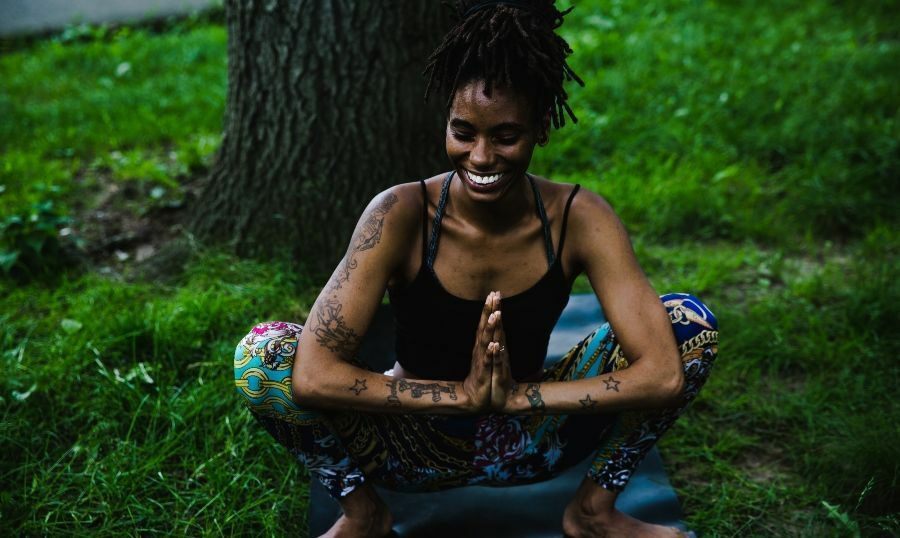
 By
By 




